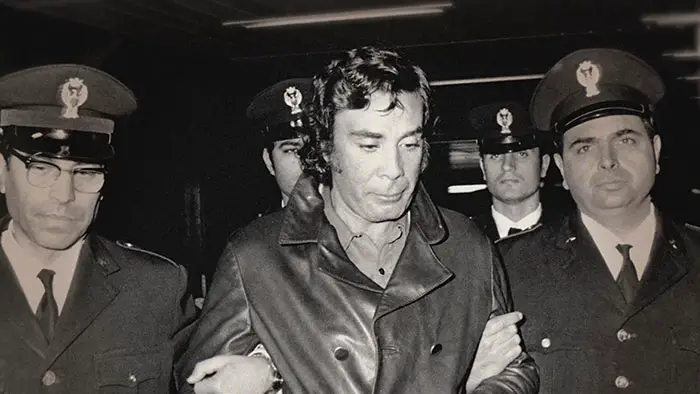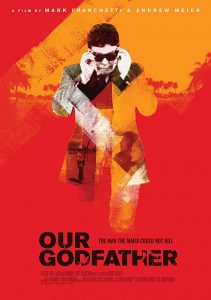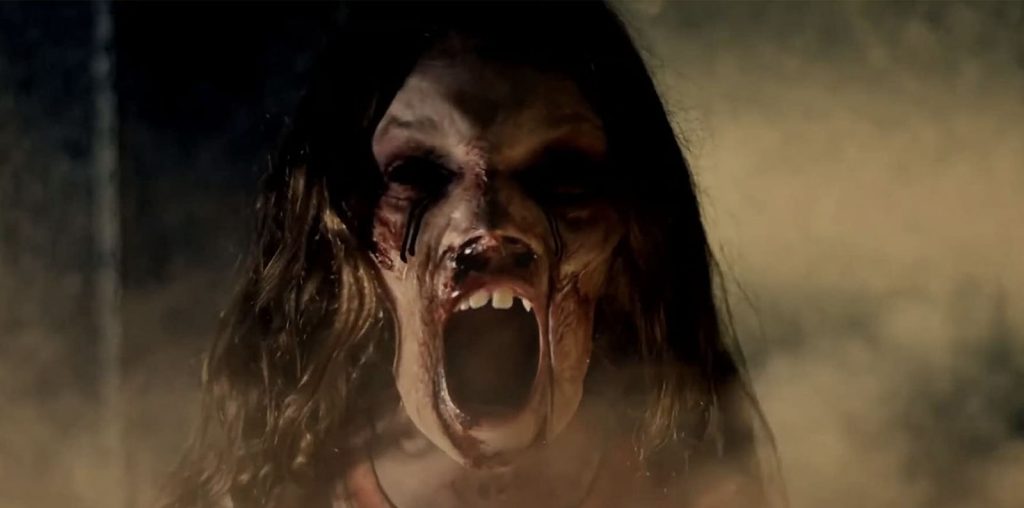
Our Godfather, written and directed by Mark Franchetti and Andrew Meier, has what you’ve come to expect from a mafia movie: tough guys, fastidiously prepared Italian food, ironic family values, etc. But it has something else—something that sets it apart from the crowd of pinstripe suits and track pants. You would think the movie would follow Tommaso Buscetta from his green beginnings as a mafioso to becoming a “man of honor” (a man who has killed for the mafia) to his unprecedented testimony that crippled the mafia forever, but the film uses all of that merely as a prologue. As wildly entertaining as that story might be, Buscetta’s post-mafia life as a wanted man not only provides more than enough material to build a story with but is, perhaps, richer than anything that came before, if only because it picks up where most gangster sagas end.
For context, Buscetta was the highest-ranking member of the mafia ever to turn informant. Through his testimony, hundreds of mafioso were convicted. He was driven to this by his perception that the mafia’s code of honor—if it ever had one—was corroding. Drugs had become a major source of income, though such a thing was formally forbidden, and hits were being taken out on civilians, including Buscetta’s two sons. If the rules didn’t mean anything anymore, then Buscetta would have no problem breaking the code of silence. He wasn’t the traitor; everyone else was. This is how he framed his testimony at a trial that looked more like a gladiatorial match—large stage, elaborate seating, and bystanders hungry for drama and/or blood. The prosecutors couldn’t care less what was bubbling up in Buscetta’s heart, of course; they just wanted info.

“…Buscetta was the highest-ranking member of the mafia ever to turn informant.”
Naturally, Buscetta spent the rest of his life with a target on his back—every night out was the last five minutes of The Sopranos. Because the mafia couldn’t get to Buscetta, anyone with his last name would have to do—11 of his relatives ended up dead. To this day, his son still carries a gun, even though he lives under a different name. As hard as it is to believe, living beneath this shadow of impending death might not have been the most taxing part of Buscetta’s new life. All of a sudden, he was a house-husband and stay-at-home dad, and it wasn’t the Norman Rockwell painting he felt like he was owed. This brought about a series of psychological issues, particularly when Buscetta’s young son found out about his dad’s previous life by way of a TV news program.
Through interviews with Buscetta’s living family, home movies, and his own words, Franchetti and Meier give a human face to a figure who has been primarily filtered through catchy headlines and ominous news footage. That’s not to say the film romanticizes Buscetta in any way—the hypocrisy of mafia “values” is a central theme of the movie. It merely peels back the thick layer of processed, simplified-for-quick-consumption narrative that the media presented, finds the better story, then tells it pretty well.

Our Godfather (2019) Written and directed by Mark Franchetti and Andrew Meier. Starring Tommaso Buscetta, Cristina Buscetta, Roberto Buscetta, Lisa Buscetta, Giovanni Buscetta, Roberto Precioso, Giovanni Ayala, Anthony Petrucci, John Huber, Alfredo Principe.
8 out of 10 stars
"…“...it picks up where most gangster sagas end.”"

